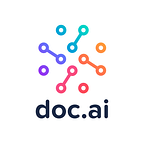Meet our advisor Erica Ramos, President of the National Society of Genetic Counselors
We regularly share interviews with our doc.ai advisors, this week meet Erica Ramos, scientific advisor at doc.ai. Erica builds products, programs and strategies in the genomics and the genetic counseling arenas with expertise in rare diseases and predictive genome sequencing.
- You are the president of NSGC, what does a genetic counselor do?
Genetic counselors are healthcare providers who use their advanced training in medical genetics and counseling to help patients and their families evaluate how their genetic makeup might impact their health. Genetic counselors support all types of people for all different reasons — from those who are looking to understand the cause of a disease they already have or to better maintain their health through disease prevention. The National Society of Genetic Counselors — or NSGC — is the professional organization that provides support, advocacy, continuing education and community for genetic counselors.
2. How many active GC do we have in the US, can they keep us with the explosion of the genetic testing market?
There are about 4,000 certified genetic counselors in U.S. and about 2,600 working in patient care — so about 65% of all certified genetic counselors see patients. As the uses of genetics and genomics have expanded, there has been a great demand for genetic counselors to work in non-patient care roles. This is a fantastic trend because when you incorporate genetic counselors into all areas of the development pipeline for clinical products, they bring the voice of the clinician, the patient and their family, which supports the development of the best and most applicable clinical products and services. But it is equally important to ensure that genetic counselors are in the clinic, either face-to-face or via alternative service delivery models like telephone or video counseling. Genetic counselors in both types of roles are critical to keeping up with the growth of the genetic testing market.
The great news is that genetic counseling is one of the most rapidly growing health care specialty professions. The genetic counseling profession has doubled in size in the last 10 years and there are more than 43 accredited training programs who are training students or will be accepting their first classes in the next few years. But we will need to continue to be creative and innovative in thinking of ways to reach more people as they pursue testing.
3. How can genomics be used to help predict and prevent disease?
Your chance of developing many diseases is determined in part by your genetic makeup. Some conditions are mostly caused by your genetics, like sickle cell disease or cystic fibrosis, which are two common genetic diseases that we see in children. For other conditions, it’s a combination of genetics and environment. Conditions like high cholesterol or high blood pressure may have a genetic component, and the genetics can be more impactful when these conditions run in families. But your risk for the disease will depend on a variety of factors — your genes don’t determine everything.
Now that we are able to sequence a genome for hundreds to thousands of dollars, the hope is that we will learn more about how each variation in your genome contributes to or protects you from disease. If we have an idea of what you are at risk for and how high that risk is, we can take individualized approaches to lower your risk, optimally preventing disease altogether. Your genome won’t tell us everything as your environment shapes many things about who you end up being as well. But it has the potential to tell us more than it ever has before.
4. What are the most common questions GC’s get? is there a top 3 questions?
It certainly depends on what is going on in people’s lives. Are they pregnant? Did a family member recently get diagnosed with cancer? Are they adopted and wondering if the direct to consumer testing on TV can help them learn more about their genetic risk?
Generally, the two most common questions are:
How much does my family history influence my risk to get a specific medical problem. For instance, if my mother had Alzheimer’s disease, will I get it too?
And it depends on the condition but if there are several people in your family with the same condition, if they were diagnosed at a much younger than average age (like a woman with ovarian cancer at
How do I know if I should see a genetic counselor or get genetic testing?
If you are worried about your personal or family history or interested in using genetic testing to prevent disease or even considering direct-to-consumer testing, a genetic counselor may be able to help. Go to findageneticcounselor.com to find someone in your area or by phone.
5 . Why did you join doc.ai as an advisor?
When I graduated from my genetic counseling training program, the first draft of the human genome from the Human Genome Project was just recently completed. The idea that we would ever sequence everyone’s genome would have been ridiculous to most, especially if you proposed that it would happen within a few decades. Genomics has always been incredibly appealing in medicine because we intuitively know the importance of our genetic makeup when it comes to how we develop disease so when the cost of sequencing plummeted and the quality of sequencing improved, it allowed us to dive headfirst into figuring out how we could do more with the genome that we could before. In order for us to keep pushing further and to truly make genomics available and optimized for all, we need to pair it with other fast-growing, innovative technologies and approaches to research and data delivery. I was thrilled that doc.ai wanted to do just that and am thrilled to be a part of it!
